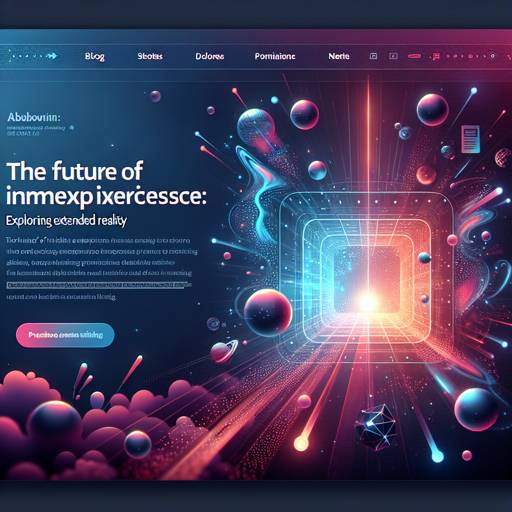Extended Reality (XR) is an umbrella term that encompasses virtual reality (VR), augmented reality (AR), and mixed reality (MR). It is a burgeoning technology that is shaping the way we interact with the digital world, offering immersive experiences that blur the line between the physical and virtual realms.
VR, the most well-known form of XR, transports users to computer-generated environments, allowing them to fully immerse themselves in a virtual world. AR, on the other hand, overlays digital information onto the real world, enhancing our perception of reality. MR combines elements of both VR and AR, integrating virtual objects into the real world in a seamless manner.
One of the key driving forces behind the rise of XR is the advancement of hardware and software technologies. Head-mounted displays (HMDs) have become more sophisticated and affordable, making it easier for consumers to access immersive experiences. In addition, the development of powerful graphics processing units (GPUs) and augmented reality platforms has paved the way for more realistic and interactive XR content.
The applications of XR are vast and varied. In the gaming industry, XR is revolutionizing the way players engage with virtual worlds, providing a more immersive and interactive gaming experience. In the healthcare sector, XR is being used for surgical training, patient education, and therapy. In the field of architecture and design, XR is enabling architects and designers to visualize and manipulate 3D models in real-time.
As XR continues to evolve, its potential to transform various industries is becoming increasingly apparent. Companies are exploring new ways to leverage XR technology to enhance customer experiences, improve employee training, and streamline business operations. From virtual showrooms and interactive training simulations to virtual meetings and digital marketing campaigns, XR is offering endless possibilities for innovation and creativity.
While XR holds great promise, there are still challenges that need to be addressed, such as user privacy and data security concerns, technological limitations, and the need for more accessible and user-friendly interfaces. Despite these hurdles, the rapid development of XR technology shows no signs of slowing down, indicating a bright future ahead for immersive experiences.
In conclusion, Extended Reality is poised to revolutionize the way we interact with the digital world, offering limitless opportunities for creativity, innovation, and immersive experiences. As XR technology continues to advance, we can expect to see a new era of digital transformation unfold before our eyes.
 :
https://www.pinterest.com/xceltec0192/
:
https://www.pinterest.com/xceltec0192/












